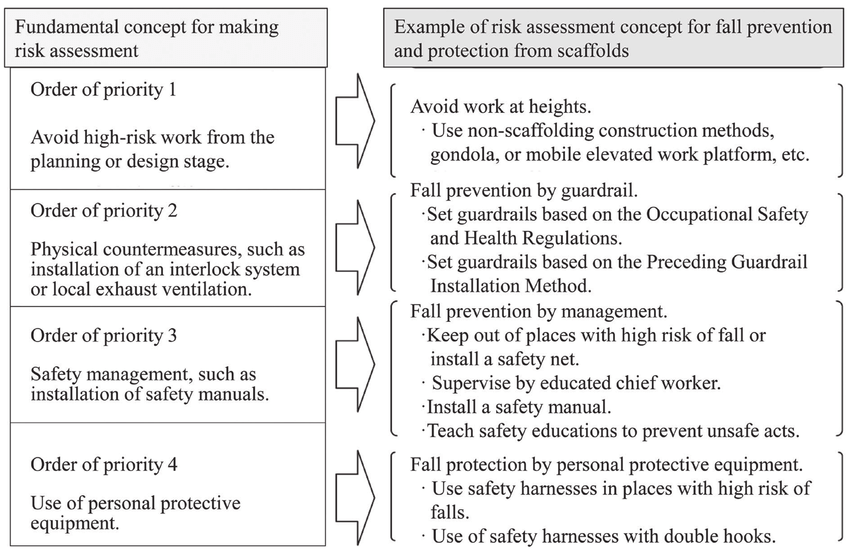4 Simple Techniques For Dementia Fall Risk
4 Simple Techniques For Dementia Fall Risk
Blog Article
Rumored Buzz on Dementia Fall Risk
Table of ContentsThe Ultimate Guide To Dementia Fall RiskOur Dementia Fall Risk IdeasThe Of Dementia Fall RiskThe Dementia Fall Risk PDFsDementia Fall Risk Fundamentals Explained
Guarantee that there is a designated location in your medical charting system where staff can document/reference ratings and record pertinent notes connected to fall prevention. The Johns Hopkins Fall Threat Analysis Device is one of numerous tools your staff can use to aid prevent negative medical events.Individual falls in health centers are usual and incapacitating unfavorable occasions that persist regardless of decades of effort to decrease them. Improving communication throughout the evaluating registered nurse, care group, client, and client's most involved buddies and family members may enhance autumn prevention efforts. A group at Brigham and Female's Healthcare facility in Boston, Massachusetts, looked for to develop a standardized loss prevention program that centered around boosted interaction and individual and family members interaction.

The development group emphasized that successful application depends on person and staff buy-in, assimilation of the program into existing process, and integrity to program processes. The group noted that they are facing how to make certain continuity in program application throughout durations of situation. During the COVID-19 pandemic, for instance, a rise in inpatient drops was related to constraints in client involvement along with limitations on visitation.
Indicators on Dementia Fall Risk You Should Know
These events are commonly considered avoidable. To execute the intervention, organizations need the following: Access to Fall TIPS sources Fall suggestions training and retraining for nursing and non-nursing staff, including brand-new registered nurses Nursing operations that permit for person and family members involvement to perform the falls evaluation, guarantee usage of the avoidance plan, and conduct patient-level audits.
The outcomes can be very damaging, often increasing person decrease and triggering longer healthcare facility remains. One study approximated remains raised an added 12 in-patient days after a person loss. The Fall TIPS Program is based upon appealing clients and their family/loved ones across 3 main procedures: evaluation, personalized preventative treatments, and bookkeeping to ensure that patients are participated in the three-step fall avoidance process.
The person evaluation is based on the Morse Fall Range, which is a validated loss risk analysis tool for in-patient medical facility setups. The range includes the 6 most typical reasons patients in health centers drop: the patient fall history, high-risk problems (including polypharmacy), use of IVs and other outside devices, psychological condition, stride, and movement.
Each threat element links with one or more workable evidence-based treatments. The nurse produces a strategy that incorporates the interventions and is visible to the care group, patient, and household on a laminated poster or published visual aid. Registered nurses develop the strategy while meeting with the client and the individual's family members.
All about Dementia Fall Risk
The poster acts as a communication tool with other participants of the individual's care team. Dementia Fall Risk. The audit component of the program includes assessing the patient's knowledge of their risk factors and avoidance strategy at the system and healthcare facility levels. Registered nurse champs conduct at the very least 5 specific interviews a month with people and their households to examine for understanding of the fall avoidance plan

A projected 30% of these falls lead to injuries, which can vary in intensity. Unlike other adverse occasions that need a standardized clinical feedback, loss prevention depends visit extremely on the needs of the person. Consisting of the input of people that understand the client best permits higher personalization. This approach has actually verified to be more reliable than loss avoidance programs that are based mainly on the manufacturing of a danger score and/or are not adjustable.
The 2-Minute Rule for Dementia Fall Risk

Based on bookkeeping results, one site had 86% compliance and two websites had more than 95% compliance. A cost-benefit evaluation of the Autumn pointers program in eight health centers estimated that the program price $0.88 per patient to implement and led to savings of $8,500 per 1000 patient-days in direct expenses associated with the prevention of 567 tips over 3 years and 8 months.
According to the technology team, companies curious about implementing the program ought to carry out a preparedness analysis and falls prevention spaces evaluation. 8 In addition, organizations should make sure the essential framework and operations for application and create an implementation plan. If one exists, the organization's Autumn Prevention Task Force ought to be associated with preparation.
All About Dementia Fall Risk
To begin, organizations ought to make sure completion of training components by nurses and nursing aides - Dementia Fall Risk. Hospital staff need to examine, based on the needs of click here to read a medical facility, whether to use a digital health and wellness record hard copy or paper variation of the fall avoidance strategy. Carrying out groups should hire and educate nurse champions and develop processes for bookkeeping and coverage on fall information
Personnel need to be associated with the procedure of revamping the workflow to involve individuals and household in the analysis and avoidance plan procedure. Systems needs to be in place so that systems can understand why an autumn occurred and remediate the reason. More especially, nurses ought to have channels to supply ongoing responses to both staff and system leadership so they can change and boost fall prevention process and connect systemic issues.
Report this page